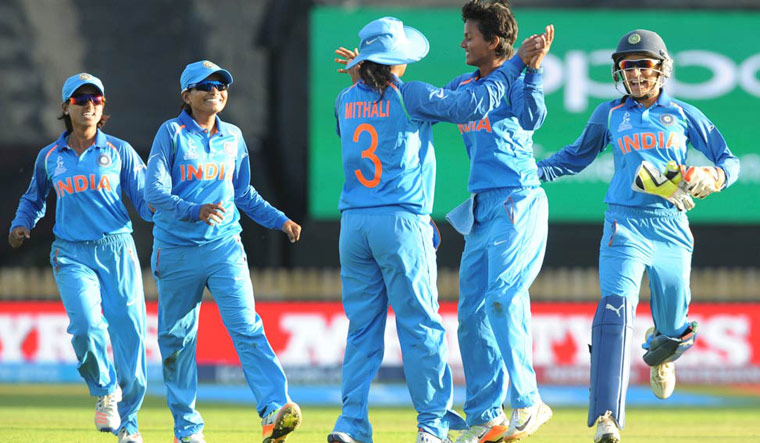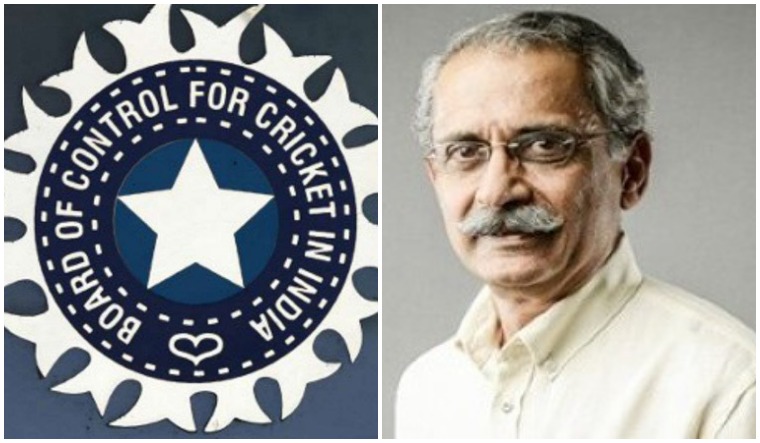The spectre of match-fixing and betting in Indian cricket raised its ugly head again when the news of bookies approaching several players in the Tamil Nadu Premier League broke. Close on its heels came another news that a top Indian woman cricketer had reported to the BCCI about an approach made by two individuals, resulting in the Board lodging an FIR with the Bengaluru Police against the two.
The approaches as well as activities of one team in the state league, reportedly, are under investigation by the Anti-Corruption Unit (ACU) of the BCCI. The 2019 edition of the TNPL , which consists of 8 teams, was played from July 19 to August 15. This is a double whammy for Tamil Nadu cricket, coming on the heels of the alleged suicide of one of the team owners and leading lights of state cricket, V.B. Chandrasekhar, last month owing to debts he incurred as a team owner in the league.
The former India opener's suicide set the Chennai Police on the TNPL trail. However, as per THE WEEK's sources, the alleged corruption in TNPL alone did not lead Chandrasekhar to take his own life. There was pressure from his near and dear ones on him to exit the T20 league. "As per our own fact checking, he was under debt, yes, but he had enough assets to take care of these. From what we could put together, his family wanted him to give up the team," said a senior BCCI official in the know of things.
ALSO READ: V.B. Chandrasekhar: The man who brought Dhoni to CSK
Investigating officers and BCCI administrators who have dealt with T20 leagues said the key in ensuring transparency and "clean" play are the team owners. "The screening of team owners is most crucial in these matters. The BCCI or state cricket associations deal with the owner. So, that is where transparency must exist," said a seasoned Indian cricket and IPL administrator, on conditions of anonymity.
As far as domestic leagues like Karnataka Premier League and TNPL are concerned, the state associations or the league governing councils have to mandatorily furnish details of team owners and ownership patterns to the BCCI and the ACU. Though the TNPL started in 2016, the team owners were, reportedly, screened and, as per rules, change in ownership allowed only after the first two years. Many teams faced financial stress in the initial years and couple of them even underwent ownership changes post the first two years.
After the 2013 IPL scam, the BCCI made a law for screening of the antecedents of team owners and also laid down stringent rules on change in ownership patterns of franchises, which had to be declared, and vetted and cleared by the governing council.
As far as the prevalence of alleged rampant fixing and betting in TNPL goes, it does not come as surprise to Board or investigating officials that such approaches have been made. State leagues have been vulnerable to such attempts in past too and bookies find it easier to approach players and officials and even access team owners. In fact, ICC's Anti-Corruption and Security Unit has issued multiple warnings of these smaller leagues, the new leagues starting in Europe and Canada, and women's cricket being vulnerable to corrupt practices. The BCCI, on its part, is strict as far as its players are concerned and do not allow all current players to participate in the such leagues. Yuvraj Singh got the chance to play in the T20 league in Canada only post retirement while Yusuf Pathan was not allowed to participate in the Hong Kong T20.
However, top Indian women cricket players—Harmanpreet Kaur, Smriti Mandhana, Jemimah Rodrigues—have been given the NOC to feature in official women's T20 leagues in England and Australia. It is probably because women's matches, tours and international competitions are fewer in number compared to the men's team, and also because of the absence of a women's IPL at home.

Women's cricket is rapidly emerging as an 'opportunity', and increased interest and telecast of women's matches has resulted in bookies trying to access women cricketers, too, thinking there is less scrutiny in women's cricket by the ACU compared to men's cricket. The BCCI approached the Bengaluru Police to register FIRs against two alleged bookies—Rakesh Bafna and Jitendra Kothari—for making approaches to a top Indian woman cricketer when she was training at the National Cricket Academy in the city. Kothari had made several failed attempts to convince the player to take him on board as her manager. He had initially contacted her through Instagram. Later, Kothari introduced her to Bafna saying he had a business proposal for her. She reported the approach made to her ahead of the India-England series in February this year, to the ACU. Interestingly, Kothari, it is learnt, was a Jain monk who had renounced worldly life!
Speaking to THE WEEK, ACU chief Ajit Singh said that it was his team's increased presence which has ensured players reporting any shady approaches by individuals. While ruling out the possibility of the “D Company” link in the fixing scandal that has rocked TNPL, Singh said that the bookies were just happy to operate and it did not matter what level of cricket was being broadcast as long as it was being done. He said that the BCCI is awaiting the report of the three-member investigative committee set up by the TNCA to look into the reports of rampant approaches to fix matches and results in the recently concluded tournament. Excerpts:
Q/ How serious are the allegations of malpractices and corruption in the state T20 leagues?
A/ There is a parallel, illegal betting market in India. So, when the stakes go high, the gamblers try to manipulate things. Wherever they get a chance, they will do it—in state domestic leagues, international matches or the new T20 leagues coming up in Canada and Europe. Wherever matches are telecast, they will bet on these matches. The level of cricket does not make a difference to them.
And when they don't get matches to watch or bet on, there have been instances when they have organised their own leagues which are not approved by the BCCI. But nobody can stop them from organising these leagues as they get a telecaster, and then indulge in fixing and betting.
It is not just limited to state T20 leagues.
Q/ Could you shed some more light on allegations of betting and match-fixing in the TNPL, and the ACU's investigation?
A/ TNPL concluded on August 15. The entire tournament was covered by the ACU. Before the tournament began, we held anti-corruption classes for players, support staff and managers. One of the provisions of the code is that if an approach is made to a player, he is bound to report it. If he doesn't, he can be punished.
These people (bookies) send WhatsApp messages, make new WhatsApp identities and try to compromise the players. Many of these approaches were reported to us on the spot. We are trying to establish the identity of these people.
TNCA has set up a committee, which is probing these allegations. Let's wait for the report from the TNCA. There is no point maligning the tournament or an individual unless one gets proof. I am sure it is a fairly competent committee and will come up with fair findings.
Q/ Are there any links to the underworld “D Company” betting syndicate in both the TNPL and women's cricket cases?
A/ No, not in these cases. It is not organised gang-running. It is more a matter of opportunity. When you want to bet, you do your own league. Rope in high-profile players. The Rajputana League, for instance, was an unofficial cricket league. Police registered multiple cases and it was wrapped up ultimately in 2016.
Q/ There were some concerns related to Karnataka Premier League, too.
A/ The fact is that things are being tightened, and that is why we are getting these reports. There will be some inquiries in Karnataka, too.
Q/ What has the ACU found about the two individuals who allegedly approached a woman cricketer? Were they in the ACU 'list'?
A/ Rakesh Bafna has come to light for the first time. Jitendra Kothari had come to notice earlier, but in a low-key manner. He was trying to work as a manager but nobody hired him. He kept making attempts, though. Interestingly, Kothari was a Jain monk earlier who had renounced his worldly life!
Q) With women's cricket growing rapidly, how serious is the threat of bookie approaches and fixing attempts?
There was a tournament in Sri Lanka earlier this year where all the bookies were present. Women's cricket is considered an easy target, unexplored till now. The bookies seem to think since the enforcement agencies may not be as alert there as they are in men's cricket, they can make the most of it.



